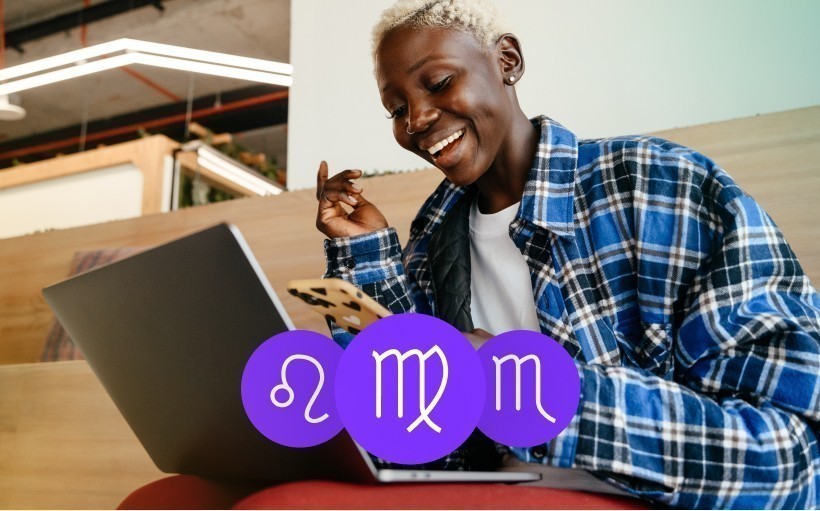Apology Language Quiz
Just like when it comes to a person’s love language (the notion defined by Gary Chapman and Jennifer Thomas), there are different kinds of apology languages. In fact, there are also five apology languages that people use. Interested to get which one of them is yours? Pass our apology language quiz to know!
Disclaimer: Our quizzes are meant to promote understanding and be fun. They are not a diagnostic tool.
What Are Apology Languages?
Apologies are something that everybody understands the concept of. And yet, the ways people apologize are so different that you may not recognize when somebody apologizes.
Imagine a situation: You’ve done something wrong, but no matter how many times you said you were sorry, the other person just wouldn’t accept it. They may have even claimed you never apologized to them! Did it ever happen to you? If so, it seems you were talking different apology languages.
When things like these happen, it doesn’t mean one of you is lying. Probably not. This likely happened because you see an apology differently. As it can be a way of expressing regret, making restitution, accepting responsibility for the harm caused, or requesting forgiveness, the primary definitions of apology language differ so much.
So, let’s accept responsibility, take a peek into the different types of apology languages, and take this quiz to find out exactly what your primary apology language is.
Related reading: Does He Love Me? Quiz Will Give You an Answer!

5 Apology Languages: Before You Start the Quiz
Like love languages, there are five languages that define how we make apologies or seek forgiveness. These reveal quite a bit about us. The topic of apology and forgiveness shows how we treat ourselves and others in the event of an intentional or unintentional hurt or inconvenience. Additionally, the way someone handles an apology clues people into how they would like to receive an apology.
It’s important to understand that apology languages can overlap. Many people are a combination of two or more. Others may have an expressed form of apologizing while they are more receptive to one that is entirely different. Remember that quizzes like this are designed to give you a general idea of your style.
We encourage you to take this quiz, and pass it on to your partner. It may give you both insights into why it might be difficult for both of you to forgive and move on after a dispute. Besides, these quizzes are a fun way to kill some time and start a great conversation about your relationship.
Apology Language Quiz Time!
1. Your partner makes a huge mistake. Do you deserve or expect an apology from them?
A: As long as they accept responsibility and own up to their mistakes, I do not expect an apology from them. The words “I’m sorry” don’t make it any more meaningful to me.
B: If the mistake affected me personally, I absolutely deserve an apology. When you express regret with the words “I am sorry,” you acknowledge what you did cause an issue. I see an apology as a clear effort to make things better. Shouldn’t that be a basic expectation?
C: I try to avoid conflict as much as possible, so I don’t ask them to apologize.
2. What category do you think your apology language falls into?
A: Expressing regret for what I have done to hurt someone and accepting responsibility for it.
B: It’s much easier to receive apologies than it is to request forgiveness.
C: I always own up to my mistakes. Even if looking back, I wasn’t the one in the wrong.
3. If a spoken apology isn’t possible, how would you go about requesting forgiveness?
A: I would write a long letter expressing regret. I would be clear about what I did to the person I hurt, and express that my behavior or actions were unacceptable. I believe that making restitution and being clear is important when asking for forgiveness.
B: I would text the person I hurt saying that I was sorry for what I did.
C: I would write out the apology, but I probably wouldn’t send it because it would just start another fight between us.
4. Imagine that your partner is in the middle of a Zoom meeting with their office. Accidentally, you trip over the modem plug. How do you believe they would react?
A: Their response would likely be calm yet stern. Accidents aren’t something to blame one another about. As long as we make a planned change to ensure it doesn’t happen again, verbal apologies aren’t needed.
B: They would want me to apologize immediately for what I did.
C: They would want me to feel ashamed from the start for being so careless.
5. Continuing from the previous question, how do you think they want you to react?
A: I think they would expect me to feel terrible, and do what I can to take responsibility. Then they would want me to give meaningful apologies to everyone I upset.
B: They would want me to fix the problem quickly and have me ask them to forgive me later.
C: They probably want me to regret what I did.
6. You showcase some unacceptable behavior around your partner while out in public. How do you apologize?
A: Feeling embarrassed for my behavior, I would immediately seek to make amends, as well as make a promise to make a planned change to myself in order to ensure that the behavior doesn’t continue in the future.
B: I would apologize and ask for forgiveness, even though the process of doing so would be really hard for me to do.
C: I would prefer to avoid my partner and hope that the issue would resolve itself over time.
7. Your best friend just made you feel incredibly hurt by their behavior. What can they say to make you feel better?
A: I hope you can forgive me for my terrible behavior. I should not have acted that way and I will make sure to remember how this hurt you in the future.
B: “I am sorry for hurting you” is more than enough.
C: I don’t need to hear any kind of restitution. That kind of thing just makes me uncomfortable.
8. Your co-worker forgets to put your name on a presentation. What do you want from them?
A. I want them to apologize and make amends by sending a correction to everyone who was in the meeting.
B. It’s all good if they send a simple text that they screwed up and thank me for my contributions.
C. It isn’t worth pursuing. I should have made sure my name was on the final product anyway.

Pass the Compatibility Quiz on the Hily dating app to get more accurate results on how you fit each other!
Quiz Results
Take a look at your answers and try breaking them down into the three choice categories of A, B, and C. Then use your answers to see how the languages defined by Gary Chapman and Jennifer Thomas describe your apology style.
Mostly A’s (5+)
If you answered with Mostly A’s your apology language is Restitution. You know when to accept who is in the wrong and you know how important responsibility is in a relationship.
A/B Mix (3+ of each)
If you answered with a mix of A’s and B’s your category in apology languages is Responsibility. Owning up and fixing things are both important to you.
Mostly B’s (5+)
If you chose five more than anything else, you emphasize Planned Change. To you, doing something to ensure it doesn’t occur again is most important.
B/C Mix (3+ of Each)
Your language is Expressing Regret. You want to resolve things and move forward by asking the person to forgive you and expect the same in return.
Mostly C’s (5+)
Your apology language is Request Forgiveness. You want to seek forgiveness as a way to push both of you past this.
Which of These Languages Is Right?
There is no correct apology language. In fact, every apology will ideally include some acknowledgment of the wrongdoing, its impact, and a promise to do better. Often, it’s what you emphasize that defines your language. However, there are potential drawbacks to each type:
- Restitution: Not every argument or mistake can be resolved with restitution. Be sure you aren’t failing to give yourself or your partner grace when amends simply aren’t possible.
- Responsibility: It’s good to take responsibility. It’s not good to brush off another person’s emotions by saying “Geez I said I was wrong. Get over it already!” On the other side of the issue, if you can make things whole, you should feel obligated to do that.
- Planned Change: You want the other person to know you have heard them and that you won’t let it happen again. You’ll even share specifics to assure them. The potential issue here is that this doesn’t always deal with hurt, disappointment, or sadness.
- Expressed Regret: When you express regret, it shows you have genuine insight into the other person’s feelings. That’s great empathy. Unfortunately, if this is your apology language, you risk self-flagellating and being a bit dramatic. This can cause problems in your relationships as it shifts focus from your behavior to your emotional reaction.
- Request Forgiveness: You don’t mind admitting you are wrong and will say so because you hate having anger between the two of you. Unfortunately, this can also lead you to apologize when you aren’t wrong. Apologizing just to avoid conflict or as a means of breaking the tension isn’t always sincere.
Understanding Apology Languages and the Future of Your Relationship
You don’t need to change your apology language. However, you may need to modify your approach if you and your partner use conflicting languages to say you’re sorry.
It’s important to honor your manner of communicating while also accepting your partner’s too. This is an area in which you can ensure a better future together by extending quite a bit of grace. Stay patient!








